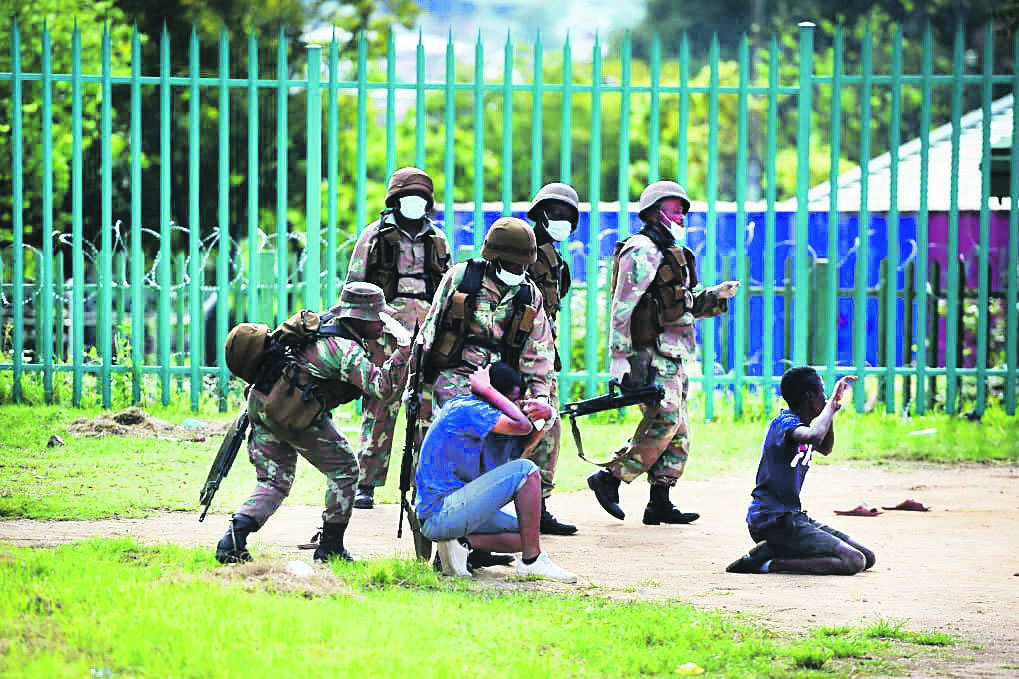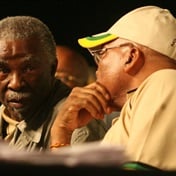
The Covid-19 crisis in SA has inevitably put the lives of all citizens at the mercy of Ramaphosa and his Cabinet, writes Dikeledi Molato
Paolo Freire, a Brazilian educationist, a history and philosophy professor, and a development and social change activist, wrote this in his book, Pedagogy of the Oppressed: “Those who authentically commit themselves to the people must re-examine themselves constantly.”
The Covid-19 coronavirus crisis in the country has inevitably put the lives of all the citizens at the mercy of President Cyril Ramaphosa and his Cabinet.
This has never been the case, at least since the advent of the democratic dispensation. Citizens have been required to give up their basic rights, voluntarily and forcibly, through the declaration of the state of disaster. This, admittedly, has been done for the health and benefit of all citizens.
It comes as no surprise, therefore, that some of the Cabinet ministers, especially Defence Minister Nosiviwe Mapisa-Nqakula and Police Minister Bheki Cele, find themselves enjoying the amount of power that they never even dreamt of having because, under normal circumstances, the rights of citizens are protected by the Constitution.
It is important to state outright, though, that we may have surrendered our basic constitutional rights, but we did not sign up to be killed by the police and members of the SA National Defence Force.
Never before have the inequalities of our society been so glaringly exposed and magnified as has happened now. Social, racial, economic and class disparities, the rural-urban divide and historical apartheid spatial planning continue to haunt us 26 years into democracy. Many black people still live in squalour in squatter camps, rural areas and ghetto townships without basic services.
This, therefore, is a time that presents a test as to whether the leaders we have are “authentically committed to the people” or not. It is perhaps also a chance for them to re-examine their actions, statements and ways of communicating with the nation.
When Ramaphosa addressed the nation on April 21 to present further economic and social measures in response to the Covid-19 pandemic, he duly acknowledged the suffering and sacrifices of South Africans since the lockdown.
He informed the nation that, “to date, Covid-19 has taken the lives of at least 58 people in our country”. This, he said, “is a loss that we all mourn, for we know the pain and the anguish of their loved ones”.
However, for the second time in his address since the lockdown began, the president shied away from also acknowledging the pain, loss, anguish, grief and mourning felt by the families and communities of the individuals who have been allegedly killed by the security forces, the police and the defence force in various townships.
Such a glaring omission in the president’s speeches did not go unnoticed. It became one of those things that are not said, but say a lot. The first question that such an omission raised was: Do these deaths perhaps leave him cold?
Just a few days before, on April 19, yet another young man, 23-year-old Ntando Sigasa, died of injuries allegedly sustained when he was assaulted by police in Emdeni, Soweto.
According to Sigasa’s cousin, he had gone to see his mother within that area, not far from where he lives. His death followed that of Collins Khosa in Alexandra, who was also allegedly beaten up by soldiers and succumbed to his injuries. As of April 3, eight people had allegedly been killed by police.
The police watchdog is said to be investigating these cases, as is the military ombud.
Why didn’t the president extend condolences to these families who are also in grief? What makes these lives not worth a mention? Why is the president not taking the opportunity during his addresses to the nation to send a message to citizens that the police and the soldiers are not supposed to and have not been instructed to kill?
Freire further analyses the problem of how some people who have been oppressed, “instead of striving for liberation, tend to find themselves becoming oppressors, or ‘suboppressors’.
“It is not to become free that they want agrarian reform, but in order to acquire land and thus become landowners – or, more precisely, bosses over other workers. It is a rare peasant who, once ‘promoted’ to overseer, does not become more of a tyrant towards his former comrades than the owner himself. This is because the context of the peasant’s situation, that is, oppression, remains unchanged. In this example, the overseer, in order to make sure of his job, must be as tough as the owner – and more so.”
Are the current leaders gatekeepers and overseers on behalf of the actual owners of the land and the economy? Is this why they are prepared to become even more of a tyrant towards their fellow black people?
Cele has not said much about the brutality of the police. Instead, he has been more energetic in making statements about policing of alcohol and cigarettes than the behaviour of members of police.
The problematic communication in response to these deaths has mainly come from Mapisa-Nqakula. The statements she made during media briefings and in interviews fall short of reminding us of and drawing parallels between her and Jimmy Kruger, the minister of justice, police and prisons during the National Party (NP) apartheid government in the cabinet of prime minister John Vorster, between 1974 and 1979.
Kruger is infamous for his cold and insensitive defensiveness around the brutal murder of Bantu Steve Biko by the police in custody on September 12 1977. When he addressed the NP congress on September 14 1977, Kruger responded to a question about Biko’s death and said: “I am not glad and I am not sorry about Mr Biko. It leaves me cold.”
Mapisa-Nqakula repeatedly says “we are a caring government”, but she has shown coldness regarding the death of Khosa, especially. For her to warn that soldiers must not be provoked, and that “you only have your life to lose”, instead of condemning the brutal force meted out against citizens, is a contradiction to being a caring government.
Many citizens have, as a result of the minister’s undertone, been overcome by a sense of trepidation, and justifiably so.
During a meeting of Parliament’s joint defence committee, the minister and the defence force’s top officials said soldiers should not allow “anarchists” to undermine the authority of the state. ANC MP Jerome Maake was quoted as saying it was “none of our business” how soldiers conducted themselves during lockdown operations. Why don’t we talk about the citizenry itself? If you’re not supposed to be on the streets, why are you on the streets? It means you’re breaking the law, and why do we protect people who break the law?”
The military ombud was also part of this meeting. This should mean that we cannot expect any objective outcomes from the investigations he is conducting into Khosa’s death and into the 33 complaints he was reported to have received of abuse of power by soldiers.
With another 70 000 soldiers expected to be deployed, more deaths are imminent in the townships. After all, it happened in Marikana, Life Esidimeni and during service delivery protests. Those deaths already exceed the number of reported Covid-19 deaths. The former liberators are the current oppressors.
Molatoli is a director at Bamboo Seeds Communications
Do you feel that the protectors of citizens have become the oppressors?
SMS us on 35697 using thekeyword OPPRESSED and tell us what you think. Please include your name and province. SMSes cost R1.50. By participating, you agree to receive occasional marketing material




 Publications
Publications
 Partners
Partners









